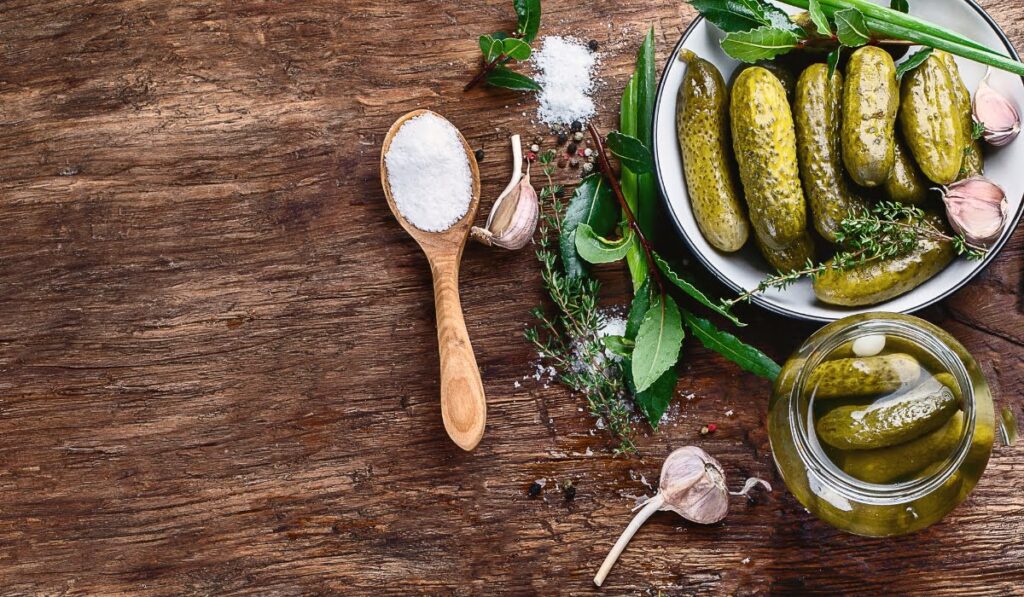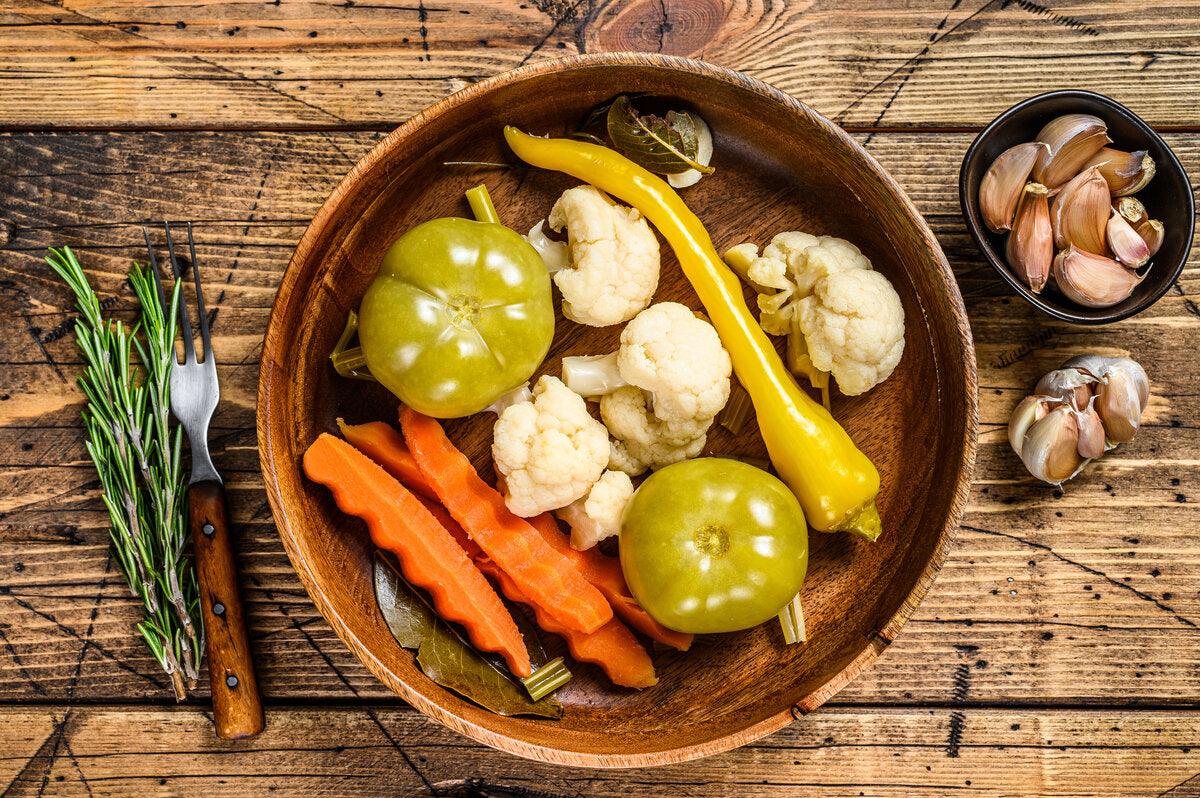Pickles are a beloved staple in cuisines around the world, known for their crunchy texture, tangy flavor, and long shelf life. Whether they’re cucumbers soaked in vinegar or fermented vegetables rich in probiotics, pickles can offer surprising health benefits—but they also come with some caveats.
In this post, we’ll explore the nutritional properties, health benefits, and potential contraindications of pickles, helping you decide how (and how much) to include them in your diet.
🥒 What Exactly Are Pickles?
“Pickles” usually refer to vegetables—commonly cucumbers—that have been preserved in a brine or vinegar solution. There are two main types:
- Fermented Pickles: Made by soaking vegetables in a saltwater brine, allowing natural bacteria to ferment them over time. These are rich in probiotics.
- Vinegar-Based Pickles: Preserved in vinegar, offering a sour taste but without the probiotic benefits.
Other popular pickled vegetables include carrots, beets, cabbage (sauerkraut), kimchi, and even garlic and onions.
✅ Health Benefits of Pickles
- Rich in Probiotics (in Fermented Pickles)
- Naturally fermented pickles support gut health by introducing beneficial bacteria (like Lactobacillus) into the digestive system. A healthy gut microbiome is linked to better digestion, stronger immunity, and even mood regulation.
- Low in Calories
- Most pickles are low in calories, making them a satisfying snack option for those watching their weight—just be cautious of sodium levels.
- Rich in Antioxidants
- Pickled vegetables often retain antioxidants such as vitamin C and beta-carotene, which help fight free radicals and reduce inflammation.
- Blood Sugar Regulation
- Vinegar in pickles may help slow the absorption of carbohydrates, potentially supporting better blood sugar control after meals.
- Improved Mineral Absorption
- The acidity in vinegar-based pickles may help enhance the body’s absorption of minerals like calcium, magnesium, and iron from other foods.
⚠️ Contraindications and Risks
While pickles can be beneficial in moderation, there are several important drawbacks to consider:
- High Sodium Content
- Most pickles are loaded with salt, which can contribute to high blood pressure, fluid retention, and increased risk of heart disease if consumed in excess—especially for individuals on a low-sodium diet.
- Acidity and Stomach Irritation
- The acidic nature of pickles may irritate the stomach lining in people with acid reflux, gastritis, or ulcers.
- Not All Pickles Contain Probiotics
- Commercial, shelf-stable pickles are often pasteurized, which kills the beneficial bacteria. Only unpasteurized, refrigerated fermented pickles contain live probiotics.
- Preservatives and Additives
- Store-bought pickles may contain artificial coloring, preservatives, or excess sugar, which diminish their health value.
- Risk for People with Kidney Problems
- High sodium intake can strain the kidneys, so individuals with kidney disease or compromised kidney function should limit or avoid pickles.
🥗 How to Include Pickles in a Healthy Diet
- Choose fermented, unpasteurized pickles from health food stores or farmer’s markets to get probiotic benefits.
- Read labels to avoid products with excess salt, sugar, or additives.
- Make your own pickles at home using simple ingredients—this way, you control the salt and fermentation process.
- Use pickles as a flavor enhancer in sandwiches, salads, or wraps rather than as a main snack.

Pickles can be a flavorful and health-supportive addition to your diet when consumed mindfully. Their probiotic content (in fermented versions), antioxidant properties, and low calorie count make them appealing. However, their high sodium levels and potential stomach irritation mean they’re not ideal for everyone.
As with most things, moderation is key. If you love that tangy crunch, go ahead and enjoy—but be smart about your choices, and opt for natural, minimally processed varieties whenever possible.
Do you prefer fermented or vinegar pickles? Have you tried making your own at home?
Share your experience in the comments below!

